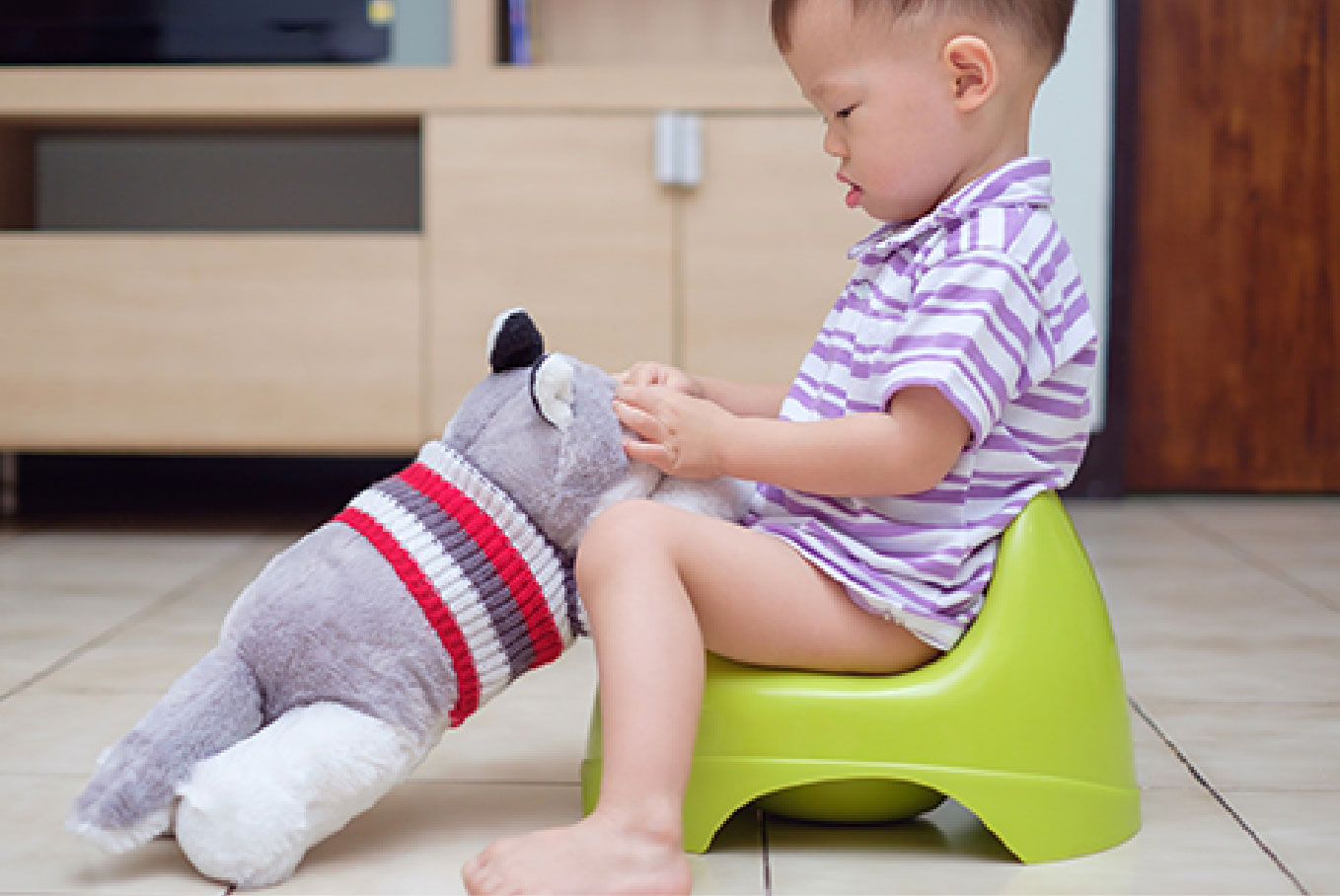For parents of children with developmental disabilities, potty training can be life-changing. Not only is it more convenient, cleaner, and cheaper than diapers, but it can also open doors: no more social shame and stigma around having an older child who is still in diapers, and the ability to enroll in pre-school (most won’t accept students who aren’t potty trained).
We understand and are here to help. Below are our seven favorite potty training tips curated by MeBe’s Co-Founder and Executive Director, Abigail Bunt, M.Ed., BCBA; and Director of Quality Assurance, Elizabeth Jordan, MA, BCBA. Say hello to an easier, more successful potty training experience.
1. Look for the signs
Is your child uncomfortable when they’re wet or soiled? Are they indicating when they need to use the restroom? These are signs that they may be ready for potty training.
On the other hand, if you’re running into a lot of resistance behaviors when trying to make the transition from diapers to toilets—like acting out, accidents, or simply not understanding the concept of potty training—then it may be too early. Give it a few months and try again.
Start with one epic potty training weekend. Let your child spend the day naked, give them plenty of fluids, and try to catch them when they need to go. It’s a great way to jump in with both feet.
– Abigail Bunt, Co-Founder and Executive Director of MeBe
2. Party without pants
When your family is ready to make the leap, jump in with both feet. “Start with a fun potty party weekend,” says Abigail. “Let your child spend the day naked, give them lots of fluids, and try to catch them when they need to go. Explain that they need to indicate when it’s restroom time and try to read their behavior throughout the weekend. If your child isn’t indicating well and it’s causing accidents, switch to a scheduled bathroom break every 30 minutes to help them get the hang of it.”
3. Don’t be too hard on yourself
Scheduling a fun potty weekend is one thing, stressing yourself out is another. “Being consistent is more important than going all out,” explains Elizabeth. “If you can’t do a weekend potty party because of work commitments or other children, that’s fine!
Just try to schedule some time every day to potty train, like breakfast to noon or dinner time to bedtime. Do what you can do, enjoy the time with your child, and try not to stress out too much. It may not always feel like it, but potty training can be a fun and exciting experience.”
4. Reward wins
You know that treat your child can’t get enough of? Keep a stash of it handy to reward wins and make potty time all the more enticing. Oh, and feel free to party a little every time they get it right. Praise, cheers, and hugs can be even better than M&Ms (though those don’t hurt, either).
5. Use what works
According to Abigail, those little plastic toilets can be lifesavers. “Before potty training my kids, I didn’t understand those small plastic toilets. To be honest, they seemed kind of gross and inconvenient. Once we started having accidents, though, it didn’t take long to change my mind.
You can take the plastic toilets everywhere you go, so there’s no anxiety about leaving the house and not having a potty accessible. There’s no need to wait in long lines when your kiddo just can’t make it. Plus, some children are scared of using unfamiliar toilets when first training, which can lead to accidents. The plastic toilets were lifesavers for our family and they taught me an important lesson: use whatever works for you!”
6. Gather your village
You know what they say: it takes a village. Gather your forces—nannies and babysitters, your child’s teachers and school care team, your MeBe Board Certified Behavior Analysts (BCBAs)—for a united potty training front. Let them in on your strategies and supply them with the extra special treats you dole out for successful toilet trips.
If you’re potty training at multiple locations, don’t forget to prime your child as well. They may not instinctively understand to use the toilet at school or daycare even if they’re great at home. They may even be scared to use an unfamiliar toilet. Explain that toilet time will be a little different elsewhere but that they still need to indicate their intent to use the restroom, whether that indication involves a signal, item, or a communication device.
You could say something like: “At school, when you have to use the potty, you won’t be naked like at home. That’s okay. When you have to go, give your teacher one of your potty tokens and she will take you to the bathroom, okay? Then you pull down your pants and use the potty like you do here.”
“Two weeks of nonstop accidents is a little much, a month is definitely too long. Don’t be afraid to ask for help if things aren’t going well. Our experienced therapists will work with you at home.”
– Elizabeth Jordan, MA, BCBA
7. Ask the experts
If you know that your child is ready to switch from diapers (see tip number one) but you’re not noticing progress within a few weeks, Elizabeth recommends calling in extra help.
“Two weeks of nonstop accidents is a little much and a month is definitely too long. In these cases, you should reach out to MeBe’s potty party experts. Our BCBAs, Speech Language Pathologists, and Registered Behavior Technicians (RBTs) can work with you and your child at home for a few days to get training started on the right foot. You don’t have to go it alone.”

